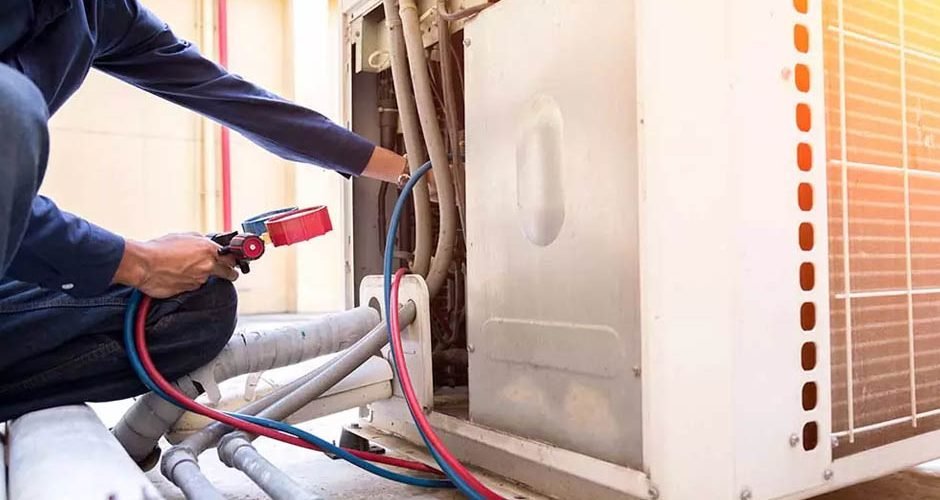HVAC (Heating, Ventilation, and Air Conditioning) services are essential for maintaining indoor comfort and air quality in residential, commercial, and industrial settings. We will delve into the realm of HVAC services, examining the importance of proper HVAC system installation, maintenance, and repair and the role of HVAC professionals such as SMI HVAC services of Santa Maria in ensuring optimal comfort and energy efficiency for occupants.
Table of Contents
The Significance of HVAC Systems
HVAC systems regulate indoor temperature, humidity, and air quality to create comfortable and healthy living and working environments. In residential settings, HVAC systems provide heating during cold winter, cooling during hot summer months, and ventilation year-round to ensure adequate airflow and circulation. HVAC systems are essential for maintaining optimal conditions for occupants, equipment, and processes in commercial and industrial buildings, enhancing productivity, safety, and comfort.
Types of HVAC Systems
HVAC systems come in various configurations to suit different building types, sizes, and usage requirements. Common types of HVAC systems include central air conditioning, heat pumps, furnaces, boilers, rooftop units, and ductless mini-split systems. Each system type has advantages and limitations in terms of efficiency, cost, and suitability for specific applications. HVAC professionals can assess a building’s needs and recommend the most appropriate HVAC system to meet those needs.
Installation and Replacement
Proper installation of HVAC systems is crucial for ensuring optimal performance, efficiency, and longevity. HVAC professionals are trained to assess building requirements, size equipment appropriately, and install HVAC systems according to industry standards and manufacturer specifications. Additionally, HVAC professionals can help clients select energy-efficient equipment and recommend upgrades or replacements for older or inefficient systems to improve comfort and reduce energy costs.
Routine Maintenance and Tune-Ups
Routine maintenance is essential for prolonging the lifespan of HVAC systems and preventing costly breakdowns and repairs. HVAC professionals offer maintenance plans and tune-up services to inspect, clean, and lubricate HVAC components, check for leaks or damage, and ensure that systems operate efficiently. Property owners can identify and address minor issues by scheduling regular maintenance visits before they escalate into major problems, saving time, money, and inconvenience in the long run.
Emergency Repairs and Troubleshooting
Inevitably, HVAC systems may experience malfunctions, breakdowns, or performance issues that require immediate attention. HVAC professionals offer emergency repair services to diagnose and resolve problems quickly and efficiently, minimizing downtime and discomfort for occupants. Whether it’s a faulty thermostat, a refrigerant leak, or a malfunctioning compressor, HVAC professionals have the expertise, tools, and parts to troubleshoot and repair HVAC systems of all types and brands.
Indoor Air Quality Solutions
In addition to regulating temperature and humidity, HVAC systems play a crucial role in maintaining indoor air quality by filtering out air pollutants, allergens, and contaminants. HVAC professionals offer a range of indoor air quality solutions, including air filtration systems, air purifiers, humidifiers, and dehumidifiers, to address specific indoor air quality concerns and improve the health and comfort of occupants. By implementing effective indoor air quality solutions, property owners can reduce respiratory symptoms, allergies, and asthma triggers and create a healthier indoor environment.
Energy Efficiency and Sustainability
Energy efficiency is a key consideration for HVAC systems, as they account for significant energy consumption in buildings. HVAC professionals can assess the energy efficiency of existing HVAC systems, identify opportunities for improvement, and recommend energy-saving upgrades or retrofits, such as programmable thermostats, high-efficiency equipment, and advanced controls. Property owners can reduce energy costs, lower their carbon footprint, and contribute to environmental sustainability by improving energy efficiency.
Regulatory Compliance and Codes
HVAC professionals know local building codes, regulations, and standards governing HVAC system installation, operation, and maintenance. By staying abreast of regulatory requirements, they ensure that HVAC systems comply with safety and environmental regulations and operate safely and efficiently. Additionally, they can assist property owners with obtaining permits, inspections, and certifications for HVAC installations or upgrades, ensuring compliance with local authorities and insurance requirements.
Customer Satisfaction and Service Excellence
A commitment to customer satisfaction and service excellence is at the heart of HVAC services. HVAC professionals strive to provide personalized, responsive, and reliable service to meet their clients’ needs and expectations. Whether it’s a routine maintenance visit, an emergency repair, or a system installation, HVAC professionals prioritize clear communication, transparency, and professionalism to ensure a positive experience for property owners and occupants alike.
Conclusion: Elevating Comfort and Efficiency
HVAC services are indispensable for maintaining indoor comfort, air quality, and energy efficiency in residential, commercial, and industrial buildings. With their expertise, training, and dedication to service excellence, HVAC professionals play a vital role in ensuring the proper installation, maintenance, and repair of HVAC systems to meet occupants’ needs and promote comfort, health, and sustainability. As buildings become more energy-efficient and environmentally friendly, the demand for skilled HVAC professionals will continue to grow, driving innovation and excellence in the HVAC industry.





